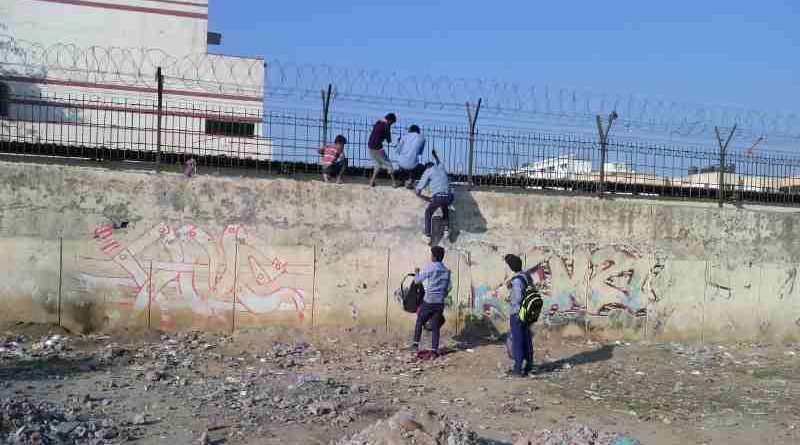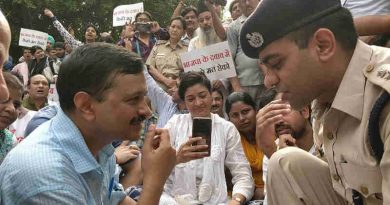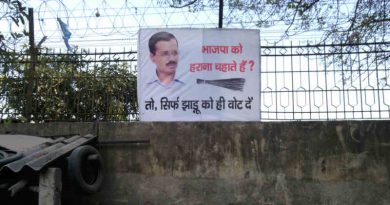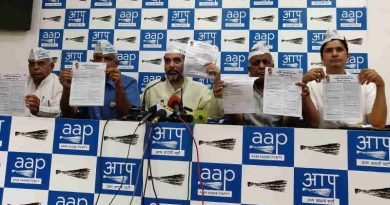Delhi LG Allows Kejriwal Govt to Reopen Schools Amid Covid Concerns

Parents of school students are expressing concerns over reopening as some of them believe that the Covid-19 pandemic is still spreading in Delhi and the third wave is expected in the next couple of months.
By Rakesh Raman
The Lt. Governor (LG) of Delhi Anil Baijal has allowed the city government of chief minister Arvind Kejriwal to reopen schools while parents are still worried about the Covid-19 situation.
In a tweet released on Friday (August 27), Baijal said he held a meeting with Kejriwal and officials of Department of Delhi Disaster Management Authority (DDMA) to review the Covid-19 situation.
As regards opening of schools, Baijal said, it was agreed to by all the members that in the first instance classes 9-12 may be opened subject to strict adherence of the SOPs (standard operating procedures) prepared for the schools by the Education Department.
He added that it was emphasized that adequate school preparedness, strict enforcement of SOPs, and daily monitoring should be undertaken to avoid any instance of spread of Covid infection in schools.
With these guidelines, Baijal allowed the Kejriwal government to reopen the schools in Delhi. These days, the Kejriwal government is not supposed to take any administrative decision without taking approval from Delhi LG Baijal.
A new law – the Government of National Capital Territory of Delhi (Amendment) Act – makes it clear that the term “government” in Delhi means the LG of Delhi and the elected government of Kejriwal cannot take any decision independently. In other words, the Kejriwal government will have to take LG’s consent before taking any executive action.
Obviously, Kejriwal is feeling more desperate because his status has been virtually reduced to the level of a personal assistant to Delhi’s LG Anil Baijal. Despite Kejriwal’s regular complaints, now LG Baijal is calling the shots in Delhi while Kejriwal has been relegated to a mere figurehead role.
Kejriwal and his beleaguered Aam Aadmi Party (AAP) have been constantly blaming Baijal for depriving them of their right to rule. They have even expressed apprehensions that the AAP members may be victimized by using Delhi Police, the Central Bureau of Investigation (CBI), and Enforcement Directorate (ED) against them.
The never-ending dogfight between Kejriwal and Baijal has reduced Delhi to a lawless state where children’s education is also getting affected. The level of education in Delhi schools has been continuously deteriorating, although Kejriwal and his colleagues have been creating a false hype about school education quality.
Chaired the 24th meeting of DDMA to review the COVID19 situation in Delhi along with Hon’ble CM @ArvindKejriwal, Hon’ble https://t.co/3xD4X4WBJ0 @msisodia, Hon’ble Minister @SatyendarJain, Chief Secretary, Dr VK Paul-NITI Aayog, CP-Delhi, Dr Randeep Guleria-AIIMS, pic.twitter.com/B7fzgWgkS9
— LG Delhi (@LtGovDelhi) August 27, 2021
Baijal – who is a lethargic bureaucrat – has also not taken any steps to save the school education in Delhi. As a result, the students are suffering while they are not trained to pursue higher studies and not employable in any respectable job.
Meanwhile, according to reports, parents of school students are expressing concerns over reopening as some of them believe that the Covid-19 pandemic is still spreading in Delhi and the third wave is expected in the next couple of months. The school reopening will begin from September 1 for classes 9 to 12.
Although the current school education has no relevance for students, the online classes that the schools were holding had a more damaging impact on the health of children. Research reveals that online education can have serious consequences on children’s mental health and personality development.
Health experts also warn that regular online classes can harm children’s physical health and growth because the online environment in most homes is not conducive to learning.
Poor ergonomics, constant watching of electronic screens, and limited space at homes can cause long-term health problems as well as inferiority complex among children because they do not get fully satisfied with the online instructions.
By Rakesh Raman, who is a national award-winning journalist and social activist. He is the founder of a humanitarian organization RMN Foundation which is working in diverse areas to help the disadvantaged and distressed people in the society.





